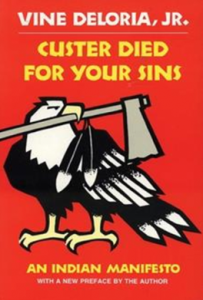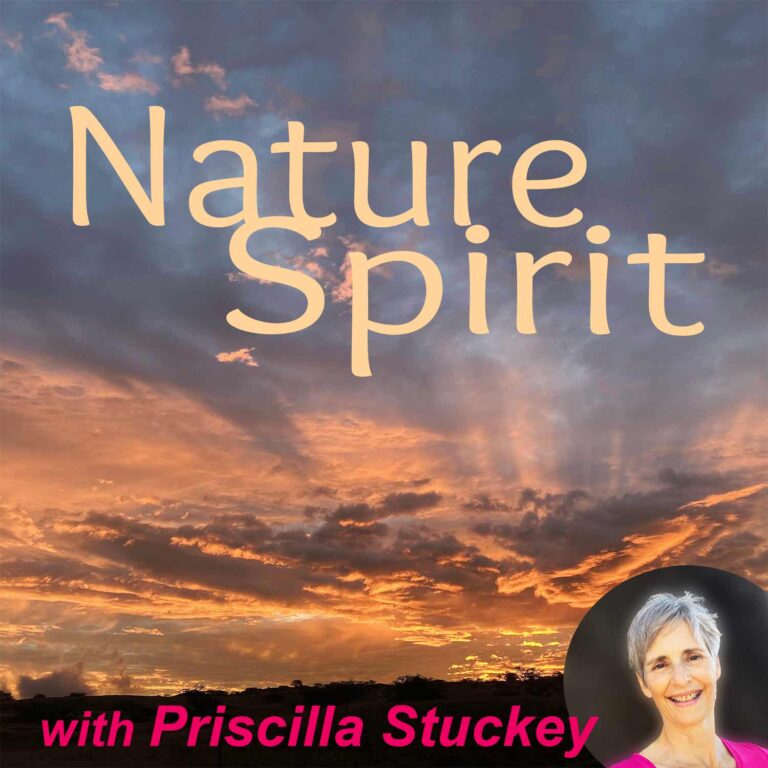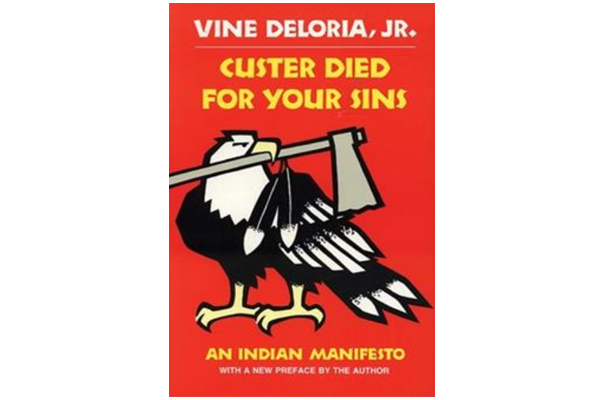Transcript
A long time ago there lived a very wealthy man who owned vast estates. The story says that he was a ruler, or government official, and this is how we know he was a landowner, because in his time and place, to have a seat in government you had to own land, and lots of it. Most of the people of the country farmed the land as sharecroppers. They earned next to nothing for growing everyone’s food, and they had no voice in government.
This wealthy aristocrat one day sought out a wandering spiritual teacher and posed a question: “What must I do to inherit eternal life?” People of his time were intensely interested in what happens after death, and the idea was just catching on that there might be two destinations—a happy place and an unhappy one. So he naturally wanted to go to the happy place. To live forever.
But he had a funny idea about how to get there. Listen again to his question: “What must I do to inherit eternal life?” He didn’t ask how to find eternal life or how to earn it; he asked how to inherit it. What an odd way to think about the afterlife! It’s like he was so steeped in the idea of inheritance that he couldn’t imagine any other way. He’d been lucky here on Earth—born to the highest class, didn’t have to lift a finger to obtain all his wealth and power, simply received what his parents handed down. So he asked, How can I make sure that I’m highborn in the next world too? How can I remain one of the lucky few?
The teacher immediately shifted the conversation away from property and privilege. He pointed instead to a moral life: “You know the rules for being good,” he said. “Don’t commit adultery, don’t steal, don’t murder, and do honor your parents.”
The man defended himself: “I’ve done all that since I was a boy!”
The teacher paused and looked at him. His rich robes. His air of entitlement. “You lack only one thing,” he finally said. “Sell all that you have, give the money to the poor, and come follow me.”
The ruler grew sad. Give up all his wealth and power? Throw away the family legacy just like that? It would mean becoming a nobody. Giving up his career of overseeing the lands, giving up his voice in government, all his influence. But even worse—so much worse!—it would mean throwing his children out on the street because they would inherit nothing at all. To lose all that would be terrible enough. But then, hand all that money over to the poor, the farmworkers?—How could he possibly?—How would that help anything at all?—It was just too big. Unthinkable. Completely irresponsible.
The teacher watched the highborn man’s eyes grow sad. He said, “How hard it is for a rich person to enter the kingdom of God! It’s easier for a camel to go through the eye of a needle than for a rich person to enter the kingdom of God.”
That wandering teacher, of course, was Jesus, and this version of the story comes from the book of Luke. I remember discussing it in Sunday school class, probably around high school age. Even then we kids tried to explain away the obvious, literal, meaning of the story: “Jesus didn’t mean giving everything away, did he? Owning some stuff has to be okay, right?” We wanted a more “spiritual” meaning to the story, something like, “So, when you own things, don’t hold them too tightly. Wear your ownership lightly. Don’t get too attached to your stuff.”
But the text is a stubborn thing, and if we stick to the obvious literal meaning of this story, we find something fascinating—in fact, something radical. A radical idea about how nature works and what makes for a good society. And that radical idea hinges on inheritance.
For the rich government official lived in the Roman Empire, where who you were depended on what you inherited. If you owned property, you were somebody. If you didn’t, you weren’t. With all of life revolving around property, the legal system naturally focused on ownership and possession. In fact, Roman law existed to protect property.
Now, only unequal societies need laws to protect property. If a legal system revolves around protecting the right to own things, it means that some people already have a lot more than others, and they want to hold onto their wealth rather than let it circulate freely, as it would if there were no laws to cement it in the hands of a few.
So Roman society, being profoundly unequal, needed a system of law to ensure that the highborn could protect their wealth. In the first century of the Roman Empire, when this story takes place, inequality was not nearly as severe as it would become a few hundred years later. But by the time Rome fell, about 5 percent of the families in the empire owned more than 80 percent of the wealth. For comparison, in the United States today, about 10 percent of families own about 75 percent of the wealth. These are eerily similar degrees of inequality, and we’ll come back to this in a bit.
For now, let’s just notice that the story zeroes in on one of the biggest social problems of its day. In a place and time where inheritance defined everything, a teacher came along who sharply criticized property. This teacher said that true life has nothing at all to do with being born into the right family. It’s not at all like land or power: you can’t receive it from your parents or pass it down to your children. In fact, to find the good life, you’ll have to give up owning material stuff altogether. Property will just get in the way.
And he brought it right down to earth with that word kingdom. True life is about entering the “kingdom of God,” he said. And suddenly he’s not talking anymore about the afterlife, because kingdoms belong to this world.
In the kingdom of his day, a few people inherited all the goodies. But he said there’s a better way to arrange things, and in that kind of society, you give up your privilege. Your riches. You become willing to live on the same footing with everyone else. And this step, he added, for those with wealth, is hard. So hard that it makes a camel going through the eye of a needle look easy!
Now, maybe Jesus was just telling a truth about human nature—how hard it is to give up any kind of privilege. Most of us don’t do it willingly. But maybe he was talking about something other than human nature—something much more changeable. Because what made the rich man’s choice not just hard but impossible was Roman law—the legal system that created only two options: either you were highborn and inherited a lavish lifestyle, or you were lowborn and spent your life in backbreaking toil and poverty. Given that choice, who in their right mind would give up an inheritance?
The thing is, inequality doesn’t just happen; it is always a choice. How do we know? Because many societies of people over the years have chosen differently. I think, for example, of Indigenous cultures in the Pacific Northwest who practiced potlatch, holding periodic giveaway feasts. The more your family could give away, the more others respected you. Status rose with generosity. It was a system of structured sharing, and over generations it tended to keep families on a similar economic footing with one another.
By contrast, in Europe the Roman class system hardened into the feudal system of medieval Europe—more than a thousand years when the masses of peasants grew the food and worked the land, while a few wealthy families inherited the land, skimmed the profits, and lived in relative luxury.
 I will never forget when I first caught a glimpse of just how embedded this system of hierarchy is in all the societies derived from Europe. I was reading a book by Vine Deloria Jr. of the Standing Rock Sioux tribe. Deloria was a theologian and philosopher of national prominence even before I’d graduated from high school. Yet throughout decades of college and graduate school I was never assigned to read anything by him even though I was studying theology and religion and philosophy.
I will never forget when I first caught a glimpse of just how embedded this system of hierarchy is in all the societies derived from Europe. I was reading a book by Vine Deloria Jr. of the Standing Rock Sioux tribe. Deloria was a theologian and philosopher of national prominence even before I’d graduated from high school. Yet throughout decades of college and graduate school I was never assigned to read anything by him even though I was studying theology and religion and philosophy.
Vine Deloria called attention to how carrying the history of different continents leads people to think and act differently in the present. “Life on this continent,” he wrote, the continent of Native Americans, was not “shaped in a post-Roman atmosphere.” Native Americans, he said, inherited their own traditions of law and custom and philosophy. By contrast, most white people inherited the legacy of Europe, which included, in his words, “feudalism, kings, queens, their divine right to rule their subjects, the Reformation, Christianity, [and] the Magna Charta.” He added pointedly, “American Indians do not share that heritage.”
When I read those words, I felt a strong wind suddenly whip through my awareness, and it blew some old mental furniture right out the window. I caught a glimpse of what it might look like—and feel like—not to drag that old feudal tradition around. Not to instinctively look up and down a social ladder to see which rung you’re on. Not to assume that the normal human society is divided up between privileged people on top and poorer people below. I caught a whiff of fresher air; I glimpsed a world where “normal” looks like equality instead.
Once I had seen that possibility, I understood how far removed my worldview as a white person was from the worldviews of most Indigenous writers. I understood, finally, that my society chose inequality, and we chose it long ago.
For that old habit of protecting property, which supplied the foundation for inequality in the Roman Empire, followed the Roman legal system down into English law and then into American law. Today American law holds property in such high esteem that it recognizes corporations as persons.
A corporation is, in reality, just a piece of property. It’s a title of ownership. Yet property is so sacred in this country that these inanimate pieces of property hold more rights to exist and be preserved than do living beings such as rivers or forests or mountains. And the rights of corporations to extract resources hold more legal weight than the rights of the living, breathing people who need those waters and lands and air to survive.
It’s an inheritance problem. We have inherited a system of law that enshrines inequality, and it does so by giving property rights a high priority. As in the Roman Empire, current law also protects inherited wealth. In the US today, the biggest predictor of a child’s future success is not intelligence or achievement; it’s the amount of wealth their parents own.
Severe inequality weakens the social fabric. Jesus was merely telling the truth: Wealth and inequality do get in the way. They get in the way of keeping a person’s heart open. And they get in the way of well-being for everyone, because severe inequality harms the health of rich people as well as poor.
And inequality limits everyone’s ability to enjoy the gifts of the Earth. For in the economy of the Earth, the gifts that sustain life are freely available to all. The sun rises on everyone’s lands. The rains and winds and pollinators do not see or respect property lines. In a world where people revere the land instead of wealth, water can flow clear and free and clean for everyone.
Inequality is not baked in to some natural order; it is not “normal.” We have to choose it. And we have to enforce it through a legal system, for otherwise the gifts of the Earth would flow more equally to all.
We can change the laws. We can write different laws—to favor equality, not privilege. To reward reciprocity, not profit. But it takes challenging the idea that inequality is inevitable, or even okay. It takes a change of heart, in other words. It takes dismantling the idea that some naturally belong at the top and others below. It takes changing our definition of status so that as a society we no longer admire riches for their own sake. It takes being willing to listen to unheard voices, those of birds and whales and the lichen on rocks. It means seeking out Indigenous voices and being willing to be transformed by what we hear.
It means, in other words, a shift in the dominant culture’s moral compass.
These changes are not impossible; they’re just hard.
What is your part, what is my part, in changing our inheritance? In shifting our laws, our hearts, toward more life-giving ways?
The job is a big one, and it needs all of us. There is something here for each of us to do.
For digging deeper
The story of the Rich Young Ruler is told in Matthew, Mark, and Luke, but only in Luke is he called a ruler, and his age is not mentioned; see Luke 18:18–25.
For figures on land usage and politics in the Roman Empire, historian Peter Heather gives an engaging account in The Fall of the Roman Empire: A New History of Rome and the Barbarians (Oxford: Oxford University Press, 2007). The figure of less than 5 percent of families owning 80 percent of land comes from Heather (138), though other historians estimate that less than 1 percent of people were landowners. Heather also discusses how protecting property was the foundation of Roman law.
Thomas Piketty is one contemporary economist who challenges the idea of inheritance, in his book Capital in the 21st Century (published in English by Harvard Univ. Press in 2014).
For more on wealth inequality, Wikipedia’s “Wealth Inequality in the United States” will lead to more sources. For more on how inequality weakens the health of both poor and affluent people alike, see “Inequality and Health,” at Inequality.org. On how parental wealth predicts a child’s success, see a Georgetown study and a Pew study.
When a society structures itself in layers of superior and inferior classes, whether according to race, income and wealth, gender, sexuality, or any other divisions, and especially when you inherit your standing in that society from your parents (so that it’s based on who you are, not what you do), that society is dealing in caste, not just class. This is part of the argument that Isabel Wilkerson makes in her powerful book Caste: The Origins of Our Discontents (New York: Random House, 2020). We don’t usually think of the US as having a caste system, but using this term gives us better language for talking about the tenacity of the American status system—a system based first of all on race but depending also on class and gender.
Inequality is not inevitable. In a culture that thinks it is, this must be said over and over again. Indigenous writers often provide alternatives to this zero-sum thinking. The Vine Deloria Jr. book I was reading was Custer Died for Your Sins: An Indian Manifesto, first published in 1969 (reprint Norman, OK: University of Oklahoma Press, 1988); the quote was from p. 11.
Ronald Trosper (Salish/Kootenai) outlined a contemporary, watershed-based form of potlatch in his paper “Incentive Systems That Support Sustainability: A First Nations Example,” published in Conservation Ecology (1999). The paper is available in the archives at Ecology and Society.
I wrote about potlatch cultures in chapter 12 of Kissed by a Fox, and you can read more there.

















all your posts are just so spot on core issues… I just love them. They are truth, embodied and spoken from your heart, mind , depth of experience and soul’s work on earth. Thank you for the grace you help us re-member and braid back into human consciousness. Of course, the animals, plants, geologics and whole universe live, breathe and radiate this wisdom throughout time and space. While we’re so full of hubris as to name ourselves “sapiens”… Thank you for speaking for the All.
Glad you find it helpful, Sally. Yes that “sapiens” bit is a bit, um, misleading at best, isn’t it? We could really use some wising up when it comes to health and happiness—both of which are so much more accessible when societies choose reciprocity and equality as their model.